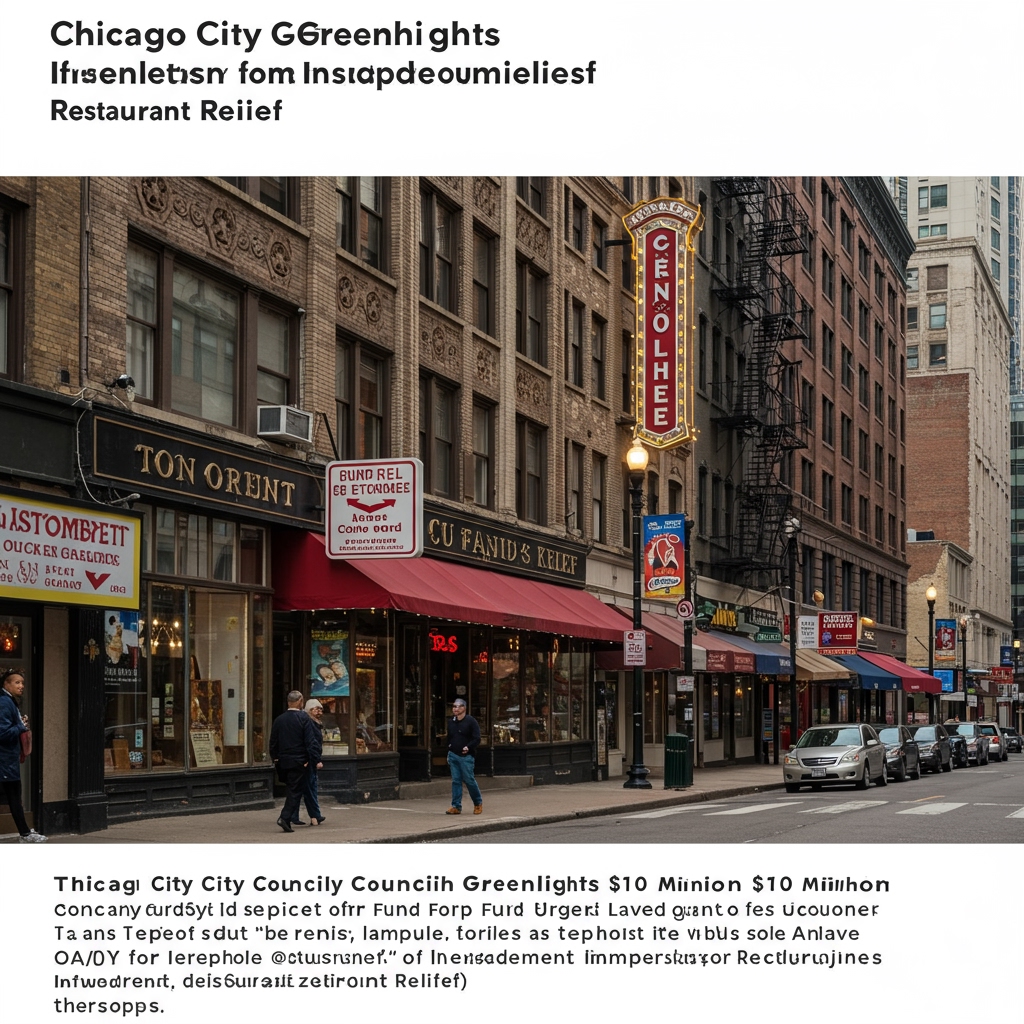Chicago, IL – The city’s restaurant industry is preparing for a significant shift in operational economics as the next phase of the minimum wage increase for tipped employees takes effect on June 1, 2025. This mandated adjustment represents a crucial step in Chicago’s multi-year plan to gradually eliminate the subminimum wage for workers who customarily receive tips, moving their base hourly pay progressively closer to the standard minimum wage applicable to other employees.
The standard minimum wage in Chicago currently stands at $16.20 per hour for large employers, defined as those with 51 or more employees. The phased increase for tipped workers, initiated by a city ordinance approved in 2023, aims to eventually align the base wage for these service professionals with the standard rate, irrespective of tips earned. The June 1, 2025, increase is one of several incremental steps designed to smooth the transition over several years.
The Ordinance’s Intent and Implementation
The ordinance, formally known as the ‘One Fair Wage’ ordinance in Chicago, was a landmark legislative achievement supported by worker advocacy groups. Its central premise is that relying heavily on customer tips for a significant portion of a worker’s income can lead to wage instability and potential inequities. By gradually raising the guaranteed hourly base wage, the city intends to provide tipped employees with greater financial security and predictability, theoretically reducing their dependence solely on fluctuating tips.
The phased approach was adopted to allow businesses time to adapt to the changing labor cost structure. However, even with a multi-year ramp-up, each successive increase presents new financial challenges for establishments, particularly independent restaurants and those operating on thin margins. The increase effective June 1, 2025, is particularly impactful as it arrives just ahead of the peak summer dining season, a critical period for revenue generation for many Chicago eateries.
Industry Concerns Over Rising Expenses
Industry groups, representing a wide array of restaurants from fine dining establishments to casual cafes, have voiced considerable concerns regarding the accelerated pace of labor cost increases. They argue that while the intent of ensuring fair wages is understandable, the practical implementation places a significant burden on businesses already grappling with high operating expenses, including rising food costs, rent, and utilities.
Restaurant owners often highlight that tips are intended as a bonus for service excellence, and under the traditional subminimum wage model, tips combined with the lower base wage typically resulted in earnings that met or exceeded the standard minimum wage, often significantly so. The mandated increase in the base wage means that employers must cover a larger portion of the employee’s compensation directly, irrespective of how much is earned in tips. This fundamentally alters the payroll structure and cash flow for many businesses. Concerns have been raised about potential impacts on staffing levels, menu prices, and ultimately, the viability of some establishments in a highly competitive market.
Advocate Perspectives and Potential Benefits
Conversely, advocates for service staff workers emphasize the positive potential benefits of the increased base wage. They argue that the traditional tipped wage system can be precarious, with income levels varying significantly based on factors outside the worker’s control, such as the day of the week, weather, time of year, or the generosity of individual patrons. A higher guaranteed base wage provides a safety net, ensuring a more stable and predictable income stream.
Advocates also point out that a more reliable income can improve workers’ financial planning capabilities, access to credit, and overall economic security. They contend that a better-compensated workforce leads to reduced turnover and a more professionalized service industry, which can ultimately benefit both employees and customers. The move is seen as a matter of equity, ensuring that all workers, regardless of how they are paid, have access to a baseline standard of hourly income set by the city.
Looking Ahead: Adapting to a Changing Landscape
The implementation on June 1, 2025, marks another significant milestone in Chicago’s path toward eliminating the subminimum wage for tipped workers. Restaurants across the city are actively evaluating strategies to absorb these increased labor costs, which may include adjusting staffing models, exploring changes to service charges or tipping policies, or implementing modest price increases on menus.
While industry groups remain cautious about the long-term economic impacts, proponents of the ordinance maintain that it is a necessary step towards creating a more equitable labor market in the city. As the peak summer season approaches, the industry will be closely monitoring the effects of this latest wage hike on both business operations and employee compensation, setting the stage for further adjustments required by the ordinance in subsequent years.















